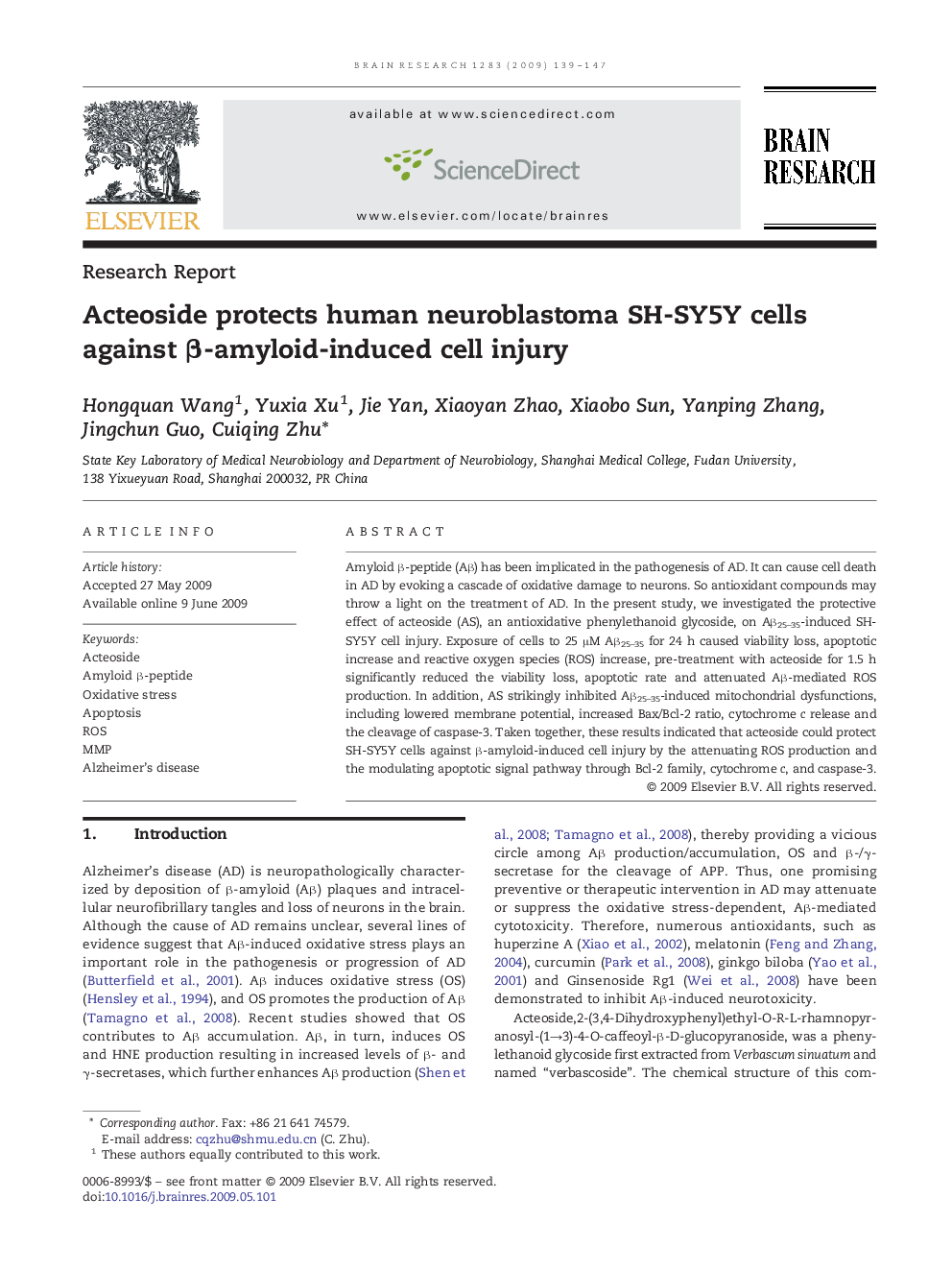| Article ID | Journal | Published Year | Pages | File Type |
|---|---|---|---|---|
| 4328138 | Brain Research | 2009 | 9 Pages |
Abstract
Amyloid β-peptide (Aβ) has been implicated in the pathogenesis of AD. It can cause cell death in AD by evoking a cascade of oxidative damage to neurons. So antioxidant compounds may throw a light on the treatment of AD. In the present study, we investigated the protective effect of acteoside (AS), an antioxidative phenylethanoid glycoside, on Aβ25-35-induced SH-SY5Y cell injury. Exposure of cells to 25 μM Aβ25-35 for 24 h caused viability loss, apoptotic increase and reactive oxygen species (ROS) increase, pre-treatment with acteoside for 1.5 h significantly reduced the viability loss, apoptotic rate and attenuated Aβ-mediated ROS production. In addition, AS strikingly inhibited Aβ25-35-induced mitochondrial dysfunctions, including lowered membrane potential, increased Bax/Bcl-2 ratio, cytochrome c release and the cleavage of caspase-3. Taken together, these results indicated that acteoside could protect SH-SY5Y cells against β-amyloid-induced cell injury by the attenuating ROS production and the modulating apoptotic signal pathway through Bcl-2 family, cytochrome c, and caspase-3.
Related Topics
Life Sciences
Neuroscience
Neuroscience (General)
Authors
Hongquan Wang, Yuxia Xu, Jie Yan, Xiaoyan Zhao, Xiaobo Sun, Yanping Zhang, Jingchun Guo, Cuiqing Zhu,
